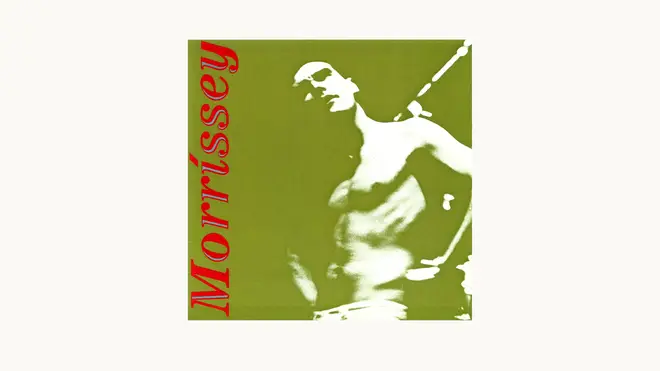What Is The Meaning Of Suedehead By Morrissey?
14 March 2018, 13:32 | Updated: 14 March 2018, 13:54

The former Smiths singer’s debut album Viva Hate was released on 14 March 1988 - and the first single was a mysterious tale of… what, exactly?
The debut solo single by Morrissey was released on 27 February 1988. Suedehead was the warm up for the singer’s first post-Smiths album, Viva Hate, which hit record shops on 14 March that year. The video sees Moz touring the streets of Fairmount, Indiana where his hero James Dean grew up.
Suedehead was a make-or-break moment for Morrissey. The demise of the Smiths the previous autumn had caused ripples in the music industry and within fandom.
He needn’t have worried: his first release for major label EMI made Number 5 in the UK charts, which was higher than any Smiths single had achieved at that point.

Morrissey - Suedehead
Work soon began on Morrissey’s first solo album, straight after the release of Strangeways here We Come. Originally Rourke and Joyce were due to play on the album, but instead Vini Reilly, the man behind Manchester project The Durutti Column, was brought in to arrange guitars and keyboards, producer Stephen Street took on bass duties and Andrew Paresi played drums.
The sessions took place between October and December 1987 at The Wool Hall in Bath, where the final Smiths album had been recorded and Morrissey worked closely with producer Street on the songs. Street later remembered: “Trying to keep Morrissey happy – as a lot of people have discovered over the years – is quite a difficult thing to do. You’re walking on eggshells a lot of the time. It was draining.”
One of their songs was Suedehead, which was to be the first glimpse of the post-Smiths Morrissey. The lyrics were obscure, apparently written about someone in Morrissey’s teenage years, but as he told the NME in February 1988 “I'd rather not give any addresses and phone numbers at this stage.”
“You had to sneak into my room just to read my diary
It was just to see, just to see
All the things you knew I'd written about you.”
The “suedehead” of the title refers to an offshoot of skinheads - the late 60s counterculture that was given a boost in the 1970s with the arrival of punk. They drew bad press by being associated with violence and racism, but the roots of the culture lay in music and fashion.
Suedehead was the title of a 1971 novel by Richard Allen, the follow-up to the successful Skinhead. However, Morrissey claimed that the song had nothing to do with the book: “I did happen to read the book when it came out and I was quite interested in the whole Richard Allen cult. But really I just like the word 'suedehead’.”
The song ends with the lines “It was a good lay, a good lay” - a very un-Morrissey sentiment at the time, for a man who claimed celibacy as a way of life: “ was never a sexual person,” he once said.
He clarified the lyric to the NME: “Well, it was actually 'a good lay'. I just thought it might amuse someone living in Hartlepool."

Johnny Marr had left The Smiths because the pressures of writing and composing the music for Morrissey’s masterpieces were being complicated by having to managed the day to day business of the band. Without proper management, and with the prospect of the band signing to a major label in place, Marr took a break from the group after the recording of the final Smiths album, Strangeways Here We Come.
When Marr thought that a story in the NME titled “Smiths To Split” was a ploy by Morrissey to get the guitarist to focus on the group, it was the end of the line for one of Britain’s finest bands. Johnny Marr announced he’d quit the band. He later told The Guardian: “To this day I haven’t met anyone who thinks a major rock group should be managed by the 23-year-old guitar player.”

Undeterred, the remain Smiths - Morrissey, bassist Andy Rourke and drummer Mike Joyce - regrouped with guitarist Ivor Perry to work on some further material, but the sessions stalled and the band quietly called it a day after declaring that they were to audition new guitarists. Marr says of his “replacements”: “I literally thought it was a joke. It was the final nail in the coffin and it took me a long time to forgive them.”













